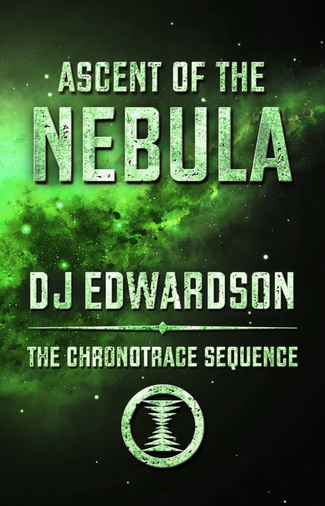 Interview by Brock Eastman Featuring The Ascent of the Nebula With the Developers’ plans to reengineer the human race in disarray, this may be the one chance Adan and the Sentient renegades have of saving the desert world of the Vast. Using the chronotrace, a device capable of looking back in time, Adan discovers their next point of attack, but a window to the past can’t prepare him for what the future has in store. He will have to risk his life, his future, and everything he’s fought for if he hopes to survive. The third and final book in The Chronotrace Sequence brings the series to its thrilling conclusion as threats long thought buried are resurrected from across the vagaries of time and space. Inspired by the Dead Poet’s Society, DJ Edwardson took the phrase Carpe Diem to heart and set out to explore the vast reaches of his imagination and share the stories he discovers with readers all over the world. He brings the The Chronotrace Sequence to life with a captivating look at a future, none of us would want and the very human struggle to stop it from happening. Brock: DJ, how did The Chronotrace Sequence concept come about? DJ: The Chronotrace Sequence started out with the premise of what the world would look like without Christianity. Originally I had the main character stumbling upon an actual believer and rediscovering what faith was, but as the plot developed over the years, the story became more about a society where technology has taken over everything and God’s role in the events became more covert and less obvious. Brock: Who are the protagonists and why are they unique? DJ: The main character is Adan. What makes him unique is that he has completely lost his memory. Not just his identity, but he doesn’t even know basic things like how to eat or walk. So even though he is an adult, in the early parts of the story he functions very much like a child. Add to that the fact that the technology in this series is extremely advanced and Adan has a hard time getting his bearings. One of the main story arcs is his journey to find his identity which adds an element of mystery to the story, I think. Gavin is the other main character and he functions as a mentor to Adan, helping him orient himself and even training Adan to use certain skills he has. He provides a window into the organization of scientists who control everything and shows that God can reach even into that kind of world and pull someone out of it. Brock: Would you share a little unknown tidbit about these two characters? DJ: Ooo, reveal my secrets, eh? That might be pretty hard with Adan since he’s lost his memory, but I’ll tell you something as an author about him that no one else knows. His name is Spanish for “Adam” As I originally envisioned him as sort of this prototypical experiment by the scientists who control the society. As for Gavin, he secretly has affections for one of the female characters, but I won’t tell you if those ever get realized. You’ll have to read the book! Brock: In three sentences, is the third book, The Ascent of the Nebula, about? DJ: The futility of trusting in our own power over God. The book also explores what it means to be human. And it also wrestles with the mysterious nature of God. Brock: Do you outline the entire book before starting, or do you write as you go and let the characters take control of the story? DJ: I did outline the second and third books, but not the first, although it was rewritten and changed so many times it sort of felt like I was writing with an outline past the first draft. Brock: How do you believe this story relates to the lives of readers? DJ: Hardly a day goes by when I don’t hear something on the news and think, “Yep, we’re one step closer to the kind of world I wrote about in the Chronotrace.” Cloning, virtual reality, the increasing role of technology in our lives, that’s all happening right now and most people seem blissfully unaware of where it’s all headed. Science has become the standard for truth that trumps everything else. All you have to do is say “well, science says…” and the argument is over in most people’s minds. As if science is this monolith and has totally figured out the meaning of life, humanity and everything in between. It really functions very much like the magisterium of the church in the Middle Ages. They have all the answers, we are all just ignorant and have to accept what they say “because science.” We can’t think for ourselves, we can’t dissent. We just need to get in line and bow the knee to the technological idol. And that’s the world of my story and hopefully people who read it will see that it’s not a very attractive one. Brock: What is your favorite genre to write for? DJ: Actually it’s fantasy. In fact, my next book after this series is is a fantasy novel and I am way excited about that. A total change of pace from what I’ve been writing, but this science fiction series has been fun to write as well and parts of it will probably feel a little bit “fantastical”. It’s not all laser guns and warp drives and all that. If you think about it, Star Wars is really fantasy in space with jedi “knights” and princesses and the mystical “force” behind it all. The Chronotrace Sequence has some of those sorts of elements as well. It’s not “hard” scifi is what I guess I’m trying to say and has some of that “fantasy” feel to it. Brock: How does it feel to have your work published? DJ: Well, I’m on my third book now, but I remember sitting down and reading the printed copy of the first one and wow, it was a little surreal. At times, I got so lost in the story that I forgot I had actually written it. That was really neat, just to feel like the story had sort of taken on a life of its own. A really great feeling. Brock: Is it difficult to be accurate to a biblical perspective or biblical facts when writing fantasy fiction? DJ: Yes and no. Yes in the sense that Christianity is a historical faith. We have God’s words spoken in history, we have events tied to places and specific time. David, Moses, Peter, Paul. These were real people who lived real lives. And fantasy just throws all that out (most fantasy anyway and most scifi as well). So unlike historical fiction I can’t just drop in bible verses and have them work as is. That’s not to say I don’t paraphrase certain verses or infuse the concepts, but they just don’t come “out of the box” per se. However, in one sense it’s not hard at all because as a Christian, biblical themes and ideas just flow out of you into your writing because that’s what’s in your heart and mind. It’s the most natural thing in the world in that sense. If Christ really is your first and best thought, that will come out. It may be understated at times, but it will be there. Brock: What is the biblical background or basis for the series? DJ: I really think of this series as futuristic “pre-incarnate” Christianity. Okay, that was a mouthful. What I mean is that it has a more Old Testament level of revelation and yet it’s set in the far future. So some of my inspiration for the events of the novel comes from Exodus, Old Testament prophets, and, though not strictly biblical, the story of the pilgrims. It’s an odd mix, but those are some of the places I drew my inspiration from. It also wrestles with the idea of what to do when God’s will is not all that clear. Even for those of us who have the bible, there are mysterious aspects to God’s will that we cannot fully understand and the characters in this series have to learn to have faith in a God they cannot see or hear just as we all do. Brock: What do you hope readers take away from the series? DJ: I hope they have an appreciation for what it means to be human, the value of friendship and family. And also I hope they are encouraged to trust God even when the path isn’t all that obvious. Brock: What are some of the strongest influences on your writing? DJ: C.S. Lewis and Tolkien are the biggest influences on me. Specifically the Space Trilogy was probably the biggest influence on this particular series. In addition to that, it was actually a couple of essays on the purpose of literature which they wrote, one by Lewis and one by Tolkien that really inspired me to want to take up the pen and write in the first place. The essays are On Fairie Stories by Tolkien and On Stories by Lewis. You definitely should pick them up if you haven’t read them. Brock: What are your hopes for your future as an author? DJ: Well, it’s hard to plan too far out, but after my fantasy novel releases I plan on starting another fantasy series aimed at a younger audience. My youngest daughter is currently eleven and even though my stories don’t have any language or graphic content in them they are a little intense for her if you know what I mean. She is very sensitive in that way. So I thought, you know, while my kids are still relatively young I’d like to write something more for them. I’ve been brainstorming on that series and have been scribbling down some amazing little tidbits. Brock: Favorite place to vacation? DJ: Italy. It’s gorgeous. I haven’t been there in a while, but I love the art and the landscapes and the climate and the food. If I could move there I would. Bellisimo! Brock: Favorite season? DJ: Summer. It’s the best time to be active. I like to sweat. I guess I’m just weird that way. But yeah, I’ll take heat over cold any day. Brock: Do you have a favorite Bible verse? DJ: Yes, Romans 8:37-39, “nothing can separate us from the love of God.” That is what I cling to. Brock: Do you listen to music while you write? If so, what are some examples? DJ: Yes, soundtracks, usually. Also if you do a search on Youtube for “epic music” you can find some amazing stuff. If I really like a particular song or album I find there I’ll go out and buy it. But yes, I always write to music, instrumental- no words. I can’t imagine writing without it, it’s part of my creative process. Brock: You use a lot of invented words in The Chronotrace Sequence. Where do you come up with all this exotic terminology? DJ: Well for instance there is a certain people group that speaks another language and so when I mention words from that language I just used Spanish which is the only other language I am fluent in besides English. And then for the technology I used a mixture of Latin, French, and English roots and just combined them in different ways, like for “oscillathe” which is this weapon that disintegrates people, I combined the words “oscillate” and “lathe”, pretty simple. That’s actually one of the things I love about writing in general and writing scifi and fantasy in particular, getting to make up new words. When you’re describing things that don’t exist in our world, making up new words is a necessity, really. Brock: Do you have a motto or an overall vision for your writing career, something that keeps you going on the tough days? DJ: I can’t actually remember where it comes from, but I’ve heard it said many times in sermons and talks that the duty of the Christian artist is to shine a light on the good, the true, and the beautiful. That’s what I try to do with every book, every chapter, every blog post. To let the world know that there is a great God who is real and who cares about such things. I may not always mention him directly by name, but to the degree that my writing opens up people’s eyes to the good, the true, and the beautiful, that’s how I measure my success. And of course the most beautiful thing of all, the truest truth, the highest good, is knowing Christ himself. 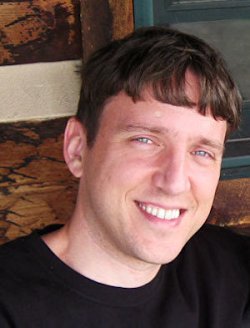
0 Comments
Leave a Reply. |
Follow meArchives
May 2024
Categories
All
|
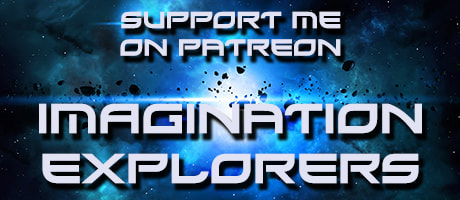
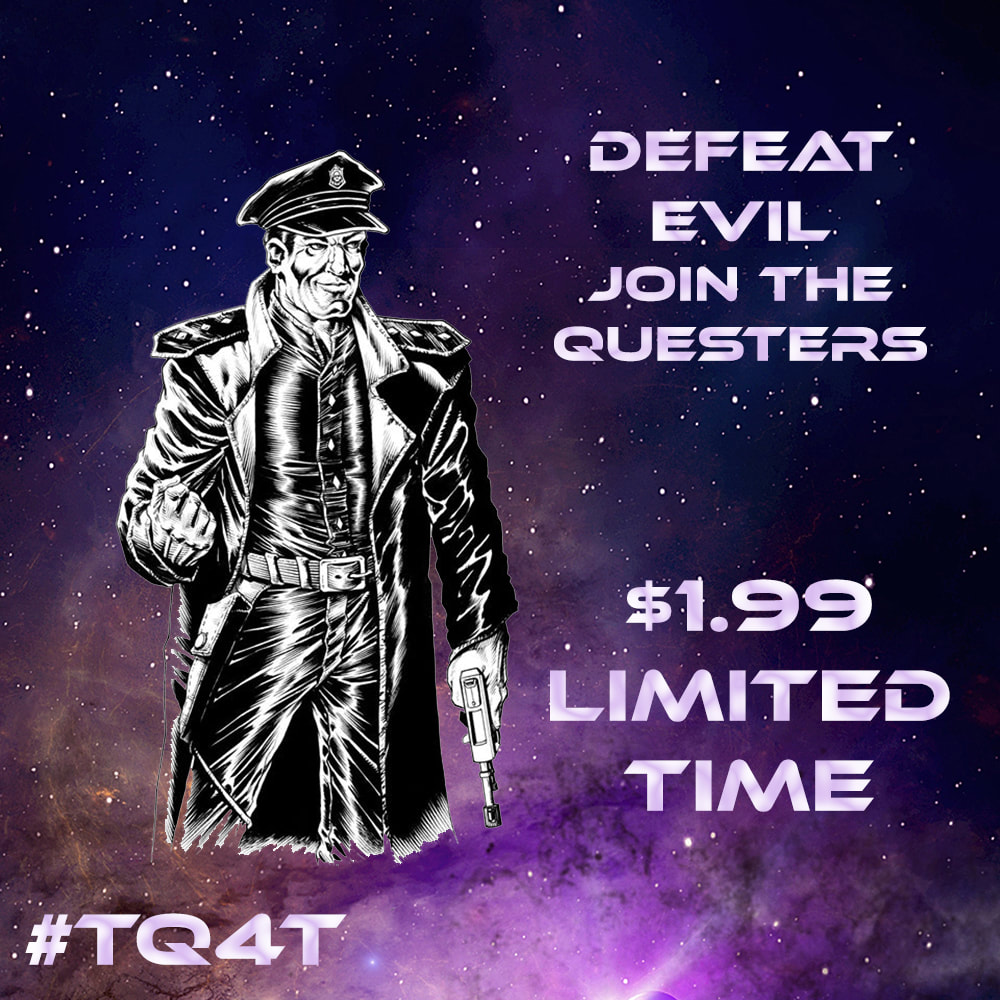
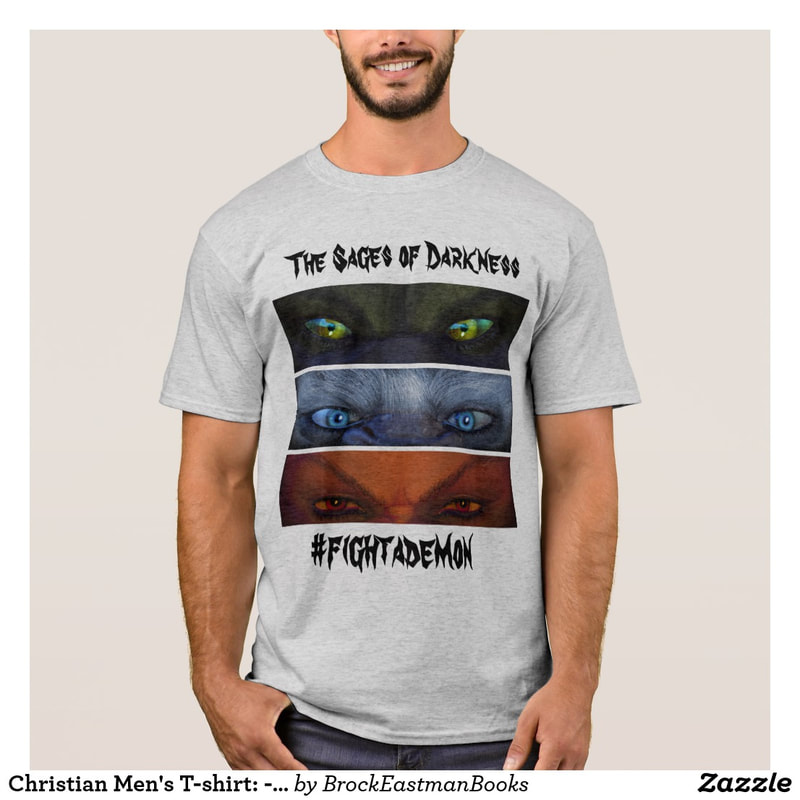

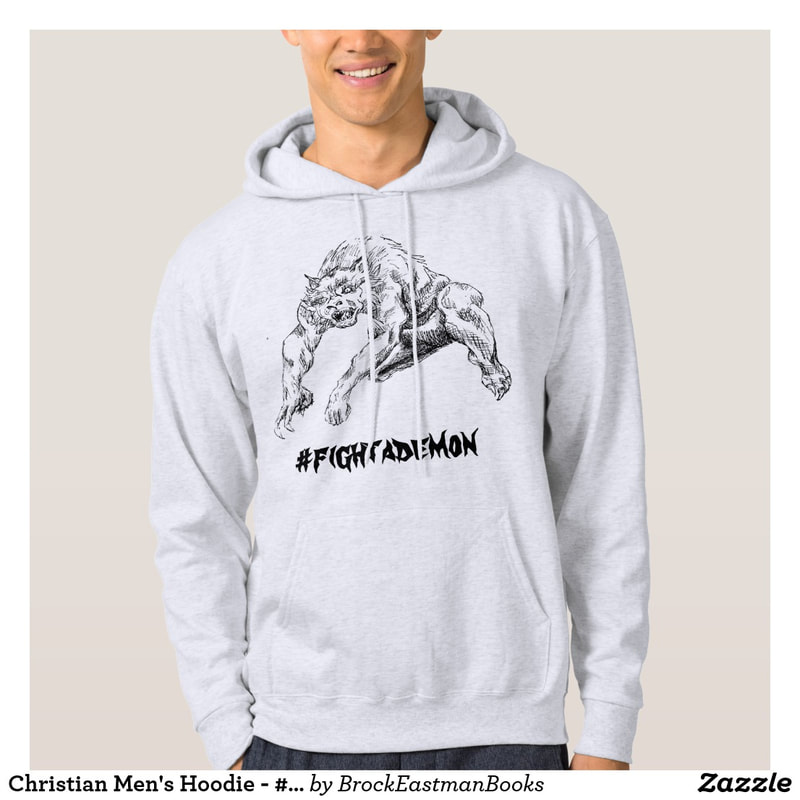

 RSS Feed
RSS Feed